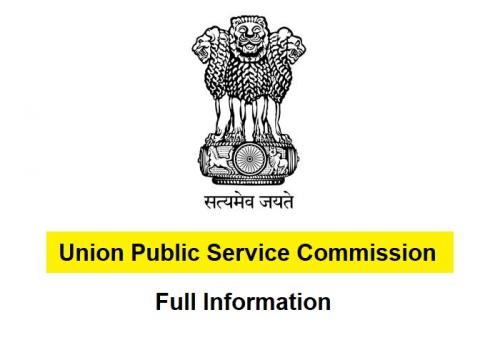Table of Content
The Union Public Service Commission (UPSC) is a constitutional body, which has responsibilities of recruiting by conducting one of the most competitive and prestigious examinations of the civil service examination (CSE).UPSC conducts the civil services exam every year along with various other important exams. The mode of this examination is offline only.
The Group A service whose appointment is made through the Civil Services Examination conducted by UPSC are IAS, IPS, IFS, and IRS, etc. Before giving the UPSC mains exam you have to mention on the form that for which role you are interested. Exams patterns are the same for all.
Every job has their own dignity and responsibilities so we should not compare.
It is headquartered in New Delhi founded on 1st Oct 1926. Arvind Saxena is the present chairperson of UPSC.
IAS
Four out of every ten Indian aspires to become an IAS officer because every Indian has a dream to serve his nation and we all know IAS rule the country not politician, one of the most prestigious career paths in the public sector is to become an IAS officer as we all know it is a golden opportunity to become a part of the bureaucracy and work for the people, you get to work in many diverse areas. So that you are not bound by one dimensional. One day you are dealing with education, another day you will be analyzing problems of health institutions and you can work with PM and CM. The main part of IAS is you will get a government house, government car with driver, security cover. You will have job security and you will have a good scope after retirement also. Sometimes you will have to work in different parts of the country even if you will get a chance to go abroad. It means you will get to know about different cultures and traditions.
But if your priority is becoming the change you want to see in the world, want to serve the society, want to help the needy and want to frame the policies then you are in the right place.
UP and Bihar are India’s two top IAS Product states.
IPS
Indian Police Service (IPS) officers appointed on the basis of their rank or promoted from the state cadre officers. The Indian Police Service comes under the Ministry of Home Affairs. First of all, IPS is a very specialized job compared to IAS. They do the most important role in the police service of India and they get to work in the field so they stay very physically fit. A nation like India requires good law and order which takes care of them. Everybody knows it is a uniform service and will get the most prestigious uniform. They have very tremendous power directly like and they can arrest anyone including ministers and IAS officers. They maintain public peace and order, Railway policing, corruption in public life, Disaster management, give security to VIPs, tackle criminals, collect intelligence and prevent crime. IPS officers interact and coordinate closely with the Indian Army and Armed forces general. Salary and benefits all most the same as IAS.
IFS
Indian Foreign Services or IFS is one of the premier civil services under the Government of India. The main aim of IAS officers is to serve the nation in foreign services. The Indian Foreign Service (IFS) deals with the external affairs of the country, which includes diplomacy, trade, and cultural relations. IFS officers are responsible for framing and implementation policies which govern India’s relations with other countries. An IFS officer’s main duties can be summarised as representing India in its embassies, high commissions, consulates, and permanent missions to multilateral organizations like the United Nations; protecting India’s national interests in the country he/she is posted, promoting friendly relations with the receiving state and its people, including non-resident Indians or persons of Indian origin; accurately reporting developments in that country which are likely to influence the formulation of India’s policies; negotiating agreements on various issues with the authorities of the receiving state; and extending consular facilities to foreigners and Indians abroad.
Eligibility
More or less, the eligibility criteria for all are the same. Candidate must be a citizen of India.
Candidate must have a graduate degree from a recognized university or possess an equivalent qualification.
Candidate must have a minimum age of 21 years to appear for the civil service
Maximum age,32 for general category,35 years for OBC and 37years for SC/ST.
General category and EWS can give 6 attempts, whereas OBC and SC/ST can give 9 attempts and unlimited attempts respectively.
Stages of Exams
The UPSC civil services exam is conducted in three stages. Those are as follows:
1.UPSC Prelims:
UPSC Prelims is the first stage of the Civil Services Exam which is conducted by the Union Public Service Commission every year. This stage is officially known as the Civil Services (Preliminary) exam. It consists of two papers.
1- General studies paper - I
2- Civil services Aptitude Test (CSAT )paper-II
|
General studies paper -1 |
CSAT paper - II |
|
Current events |
Comprehension |
|
General science |
Interpersonal skills including communication skills |
|
World and Indian geography |
Logical reasoning and analytical ability |
|
Economic and social development |
Decision making and problem-solving |
|
History of India and movement |
Basic numeracy |
|
Indian polity and governance |
Data interpretation |
|
Environment ecology, biodiversity, and climate change |
General mental ability |
Paper 1:- 200 marks, 100 MCQs
Paper 2:- 200 marks,100 MCQs
Both the papers have negative marking. The second paper is only qualifying, you have to secure a minimum of 33% marks in the second paper. So paper 1 is most important for your selection and plays a very vital role.
2.UPSC Mains:
If you qualify for the preliminary examination then you are eligible for mains examination which is a descriptive examination.
7 papers - 250 marks each
|
Compulsory paper |
Essay |
General studies |
Optional subject |
|
English |
Essay-I |
Paper-I-Indian Heritage & Culture, History & Geography of the World & Society |
Paper-I |
|
Indian language (only qualifying) |
Essay-II |
Paper-II- Governance, Constitution, Welfare Initiatives, Social Justice & International Relations |
Paper-II |
|
Paper-III-Technology, Economic Development, Agriculture, Biodiversity, Security & Disaster Management |
|||
|
Paper-IV-Ethics, Integrity & Aptitude |
Two qualifying papers of 300 marks each are there- one for English language and other for any language specified in the 8th schedule.
You can choose optional subjects of your choice from the list of subjects given by UPSC while filling the forms of the preliminary examination.
3.Personal Interview:
Once you clear the Mains examination you have to go for a personality test, which is nothing but a personal interview. It is of 275 marks. A personal interview is the end step. Basically the interviewer wants to know how much knowledge you have about society, history, and culture of India and what is the issue occurring around the society and your take on this. Also, they will check decision making and pressure handling abilities, sometimes the interviewer also can ask about your current experience for experienced candidates and for fresher they can ask about your subject taken in bachelors or masters. Make sure what you write in the CV you are justifying that.
Also for more information, you can refer to the previously asked sample question.
Important Dates:
Registration 12 Feb - 3 Mar 2020
Preliminary exam Admit card available Likely April 2020
Exam 31 May 2020
Mains Exam Admit card available Likely Aug 2020
Exam 18 Sep 2020
The exam dates are subject to change as per the UPSC guidelines. So, an aspirant is required to keep an eye on the new dates released by the commission on the official website.
Application Pattern:
Here are four simple steps involved in IAS Application Process – online registration, filling up the form, uploading documents and fee payment. The step by step procedure to apply for IAS Exam is given below:
Step 1: IAS 2020 Registration
- Visit the official website – upsc.gov.in
- Click on the link ‘UPSC Civil Services Examination 2020’ under Active Examinations section
- Enter your Name, Date of Birth, Email Address and Mobile Number.
- Enter the captcha and click on the “Submit” button. You will receive your login credentials at registered ID.
Step 2: Fill IAS 2020 Application Form
- Log in again using your credentials to fill the application form.
- Candidates have to fill their Personal, Educational, Parental and Employment details.
- Keep saving each module after filling the details.
- You can make changes before the final submission.
- However, no changes would be possible after the final submission, hence filling the application form very carefully.
Step 3: Uploading Documents
Candidates have to upload the following documents in the application form:
1.Passport-size photograph
2.Scanned image of their signature
Step 4: Pay IAS Application Fee
- Choose the payment method between online or offline mode.
- For online payment, candidates can use credit card/debit card/Rupay card or Internet Banking Services.
- For offline payment, download the e-challan and submit the cash in SBI bank branches on the next day itself.
- IAS Registration fee is INR 100 for General, EWS and OBC candidates whereas SC, ST, PwD and Female candidates are exempted from fee payment.
Salary And Perks
Service wouldn't count earnings. Still, if we consider it as a job then the basic per month salary of an IAS officer starts with INR 56100. (TA, DA and HRA extra) and can go on to reach INR 250000 for a cabinet secretary. Apart from the salary IAS officers are provided Bungalows at minimal rents along with other facilities like gardeners, security guards, cooks, and other household helps. These officers also get Government transportation, free of cost electricity and telephonic services.
VACANCY DETAILS
Total: 886 post
Indian Administrative service: 796 post
Indian Forest service: 90 post
IAS VS IPS
IAS officers are more powerful than IPS officers because of many reasons. The DGP of the state is the most powerful officer of the state but he reports to the Home Secretary, who is an IAS officer and there can be only one IAS officer in an area whereas the number of IPS officers is more. At last, if you compare salary and authority, IAS is superior to an IPS officer.
MUST READ: Haryana Public Service Commission: HCS | Full Info | Eligibility, Syllabus And Selection Process
.webp)





_1735214375.webp)







